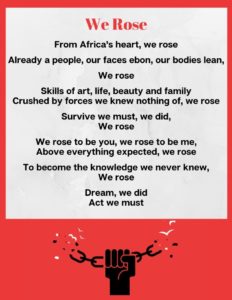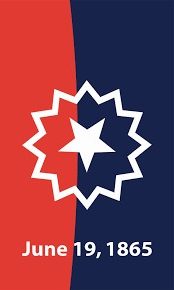Guerra & Partners’ DEI Committee Recognizes “Juneteenth Independence Day"
June 19, 1865
Juneteenth (i.e. June 19, 1865) honors the end of slavery in the United States. It commemorates the day when federal troops arrived in Galveston, Texas in 1865 to ensure that all enslaved people were free from bondage. Their arrival came two and a half years after President Abraham Lincoln signed the Emancipation Proclamation. The Emancipation Proclamation did not instantly free any enslaved people, and only applied to places under Confederate control.
In 1979, Texas became the first state to make Juneteenth an official holiday, and other states followed suit over the years. In June 2021, Congress passed a resolution designating June 19th as “Juneteenth Independence Day” thereby establishing Juneteenth as a national holiday. President Joseph (Joe) Biden signed the resolution into law on June 17, 2021.
Juneteenth Flag
The flag was originally created in 1997 by Ben Haith. It was revised in 2000 by Lisa Jeanne Graf into the version we recognize today. In 2007, the date “June 19, 1865” was added, commemorating the day that Union Army Major General Gordon Granger rode into Galveston, Texas, and informed enslaved African Americans of their emancipation.
The white star in the center of the flag has a dual meaning. For one, it represents Texas, the Lone Star State, where soldiers informed the country’s enslaved people that they were free. It also serves to represent the freedom of African Americans in all 50 states.
The bursting outline around the star is inspired by a nova, termed by astronomers to mean a new star. It represents a new beginning for the African Americans. Meanwhile, the curve that extends across the width of the flag represents a new horizon, the opportunities and promise that lay ahead for Black Americans.
The colors represent the American flag, as a reminder that slaves and their descendants were and are Americans. Lastly, June 19, 1865, represents the day that enslaved people in Galveston, Texas, became Americans under the law.
Juneteenth Poem
The poem “We Rose,” by Kristina Kay, has been called one of the “official poems” of Juneteenth:
 |
 |
Sources
https://www.history.com/news/what-is-juneteenth
https://www.cnn.com/2021/06/19/us/juneteenth-flag-meaning-explainer-trnd/index.html
https://www2.lehigh.edu/news/office-of-multicultural-affairs-provides-resources-for-juneteenth
https://www.congress.gov/bill/117th-congress/senate-resolution/269/text
https://www.whitehouse.gov/briefing-room/legislation/2021/06/17/bill-signed-s-475/

